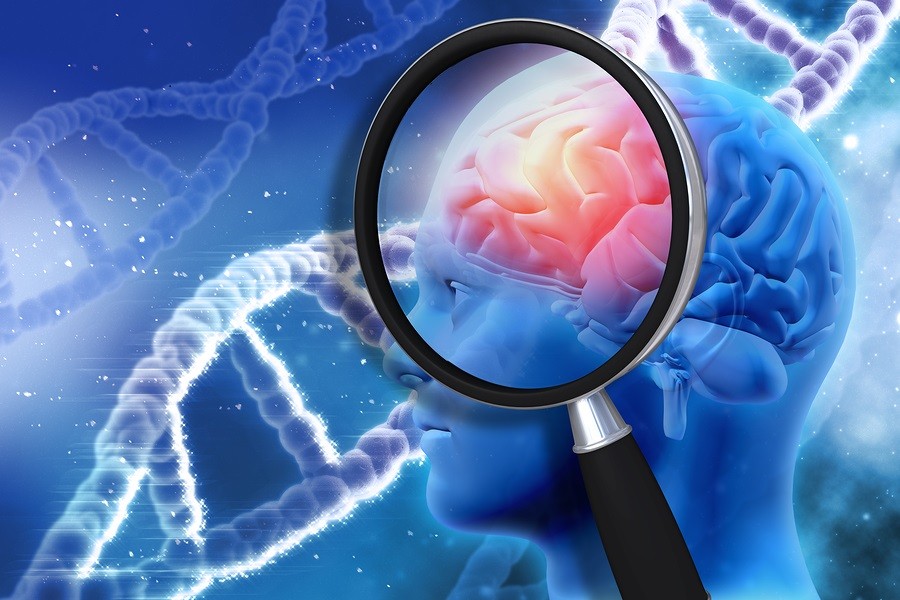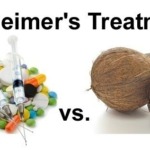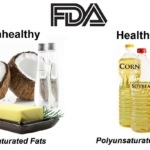
by Brian Shilhavy
Health Impact News Editor
In 2016, a study was published in the journal Frontiers in Molecular Neuroscience looking at the effects of ketones as brain fuel and their use in treating Alzheimer’s disease. The title of the study is: Can Ketones Help Rescue Brain Fuel Supply in Later Life? Implications for Cognitive Health during Aging and the Treatment of Alzheimer’s Disease.
Here at Health Impact News, we have published many articles that define “ketones” and the “ketogenic diet.” Ketones are a form of “fuel” that can nourish the brain that is different from glucose.
Glucose is the sole metabolic fuel used for nearly all brain functions under normal physiological conditions, but the brain will metabolize ketone bodies for energy when access to glucose is limited, as would occur during water-only therapeutic fasting in humans or during calorie restriction in mice. It has long been known that water-only fasting or calorie restriction is effective in managing epilepsy in humans and mice. (Source: Using the High Fat Ketogenic Diet to Heal Brain Tumors.)
Ketones can also be induced by diet as well, by restricting sugar and carbohydrates for a high fat and moderate protein diet. The ketogenic diet was developed at Johns Hopkins hospital in the 1920s as a natural cure for epilepsy, when drugs failed.
In recent years, the effects of a ketogenic diet has been studied in relation to dementia and Alzheimer’s disease in older people, as Alzheimer’s disease is increasingly being seen as a “Type 3” form of diabetes. However, since a diet cannot be patented, mainstream medicine has instead focused on pharmaceutical drugs and vaccines to combat diseases like Alzheimer’s, as such drugs are seen as a financial windfall for pharmaceutical companies, with so many Americans in the “Baby Boomer” age group entering into their senior years.
This new study from Frontiers in Molecular Neuroscience shows great promise in utilizing a dietary approach in preventing and fighting Alzheimer’s disease. We have previously documented many stories of family members and caregivers seeing huge improvements in Alzheimer’s disease simply by adding coconut oil to the diet, and coconut oil naturally provides a form of ketone energy to the brain.
For more information on coconut oil and Alzheimer’s see our section on this topic at CoconutOil.com.
Can Ketones Help Rescue Brain Fuel Supply in Later Life? Implications for Cognitive Health during Aging and the Treatment of Alzheimer’s Disease
Frontiers in Molecular Neuroscience
Abstract
We propose that brain energy deficit is an important pre-symptomatic feature of Alzheimer’s disease (AD) that requires closer attention in the development of AD therapeutics. Our rationale is fourfold: (i) Glucose uptake is lower in the frontal cortex of people >65 years-old despite cognitive scores that are normal for age. (ii) The regional deficit in brain glucose uptake is present in adults <40 years-old who have genetic or lifestyle risk factors for AD but in whom cognitive decline has not yet started. Examples include young adult carriers of presenilin-1 or apolipoprotein E4, and young adults with mild insulin resistance or with a maternal family history of AD. (iii) Regional brain glucose uptake is impaired in AD and mild cognitive impairment (MCI), but brain uptake of ketones (beta-hydroxybutyrate and acetoacetate), remains the same in AD and MCI as in cognitively healthy age-matched controls. These observations point to a brain fuel deficit which appears to be specific to glucose, precedes cognitive decline associated with AD, and becomes more severe as MCI progresses toward AD. Since glucose is the brain’s main fuel, we suggest that gradual brain glucose exhaustion is contributing significantly to the onset or progression of AD. (iv) Interventions that raise ketone availability to the brain improve cognitive outcomes in both MCI and AD as well as in acute experimental hypoglycemia. Ketones are the brain’s main alternative fuel to glucose and brain ketone uptake is still normal in MCI and in early AD, which would help explain why ketogenic interventions improve some cognitive outcomes in MCI and AD. We suggest that the brain energy deficit needs to be overcome in order to successfully develop more effective therapeutics for AD.
Read the Full Study Here.
Virgin Coconut Oil and Alzheimer’s Disease
A Holistic Guide to Geriatric Care – eBook
In this book we look at the problems and causes of Alzheimer’s as they are related to an epidemic of prescription drugs being marketed to seniors, and we look at the strong evidence for dietary intervention, starting with coconut oil.
We bring you the stories of 10 different families who saw Alzheimer’s lessened or reversed by adding coconut oil to their diet, which is representative of thousands of others who are experiencing similar results. We offer guidelines on usage and types of coconut oil to consider, as well as other non-drug tips for holistic geriatric care.
Our target audience is the millions of caregivers out there loving caring for our senior population who will find it difficult to get this information from their doctors or medical professionals not trained in these areas.
Read Virgin Coconut Oil and Alzheimer’s Disease on your mobile device!
$1.99
 |




 The FDA has NOT Banned Trans Fats! Traditional Saturated Fats like Coconut Oil Continue to Shine for Alzheimer's Disease but are Condemned by U.S. Dietary Advice
The FDA has NOT Banned Trans Fats! Traditional Saturated Fats like Coconut Oil Continue to Shine for Alzheimer's Disease but are Condemned by U.S. Dietary Advice The Evidence of Coconut Oil's Superiority Over Drugs in Destroying Pathogens Continues to be Published in Peer-Reviewed Journals
The Evidence of Coconut Oil's Superiority Over Drugs in Destroying Pathogens Continues to be Published in Peer-Reviewed Journals Study: Virgin Coconut Oil Protects Neuronal Damage and Mortality after a Stroke Incidence
Study: Virgin Coconut Oil Protects Neuronal Damage and Mortality after a Stroke Incidence Another Phase 3 Trial Failure to Develop an Alzheimer's Drug Shows Why Virgin Coconut Oil is Needed to Prevent Dementia
Another Phase 3 Trial Failure to Develop an Alzheimer's Drug Shows Why Virgin Coconut Oil is Needed to Prevent Dementia FDA Food Police want to Dictate What Foods are "Healthy" in New Guidelines Criminalizing Traditional Fats Like Butter and Coconut Oil
FDA Food Police want to Dictate What Foods are "Healthy" in New Guidelines Criminalizing Traditional Fats Like Butter and Coconut Oil